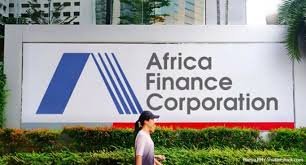Africa’s infrastructure deficit may not be a funding problem—it may be an allocation problem. According to the State of Africa’s Infrastructure Report 2025 by the Africa Finance Corporation (AFC), the continent’s vast pension and insurance pools—worth more than $775 billion—are largely invested in sovereign debt, starving infrastructure projects of long-term capital.
This over-concentration in government securities provides short-term security for fund managers but comes at a long-term cost to national development. The report warns that unless institutional investors are encouraged and enabled to diversify, Africa’s domestic capital will remain “trapped,” unable to drive the kind of transformational infrastructure needed to boost productivity, competitiveness, and job creation.
“Asset concentration in low-yield sovereign instruments is limiting the ability of pension and insurance funds to fulfil their broader economic role,” the report notes.
The Numbers Behind the Risk:
- $455 billion in pension assets
- $320 billion in insurance capital
- Investment in infrastructure remains below 2% of these totals
- Nearly 70–80% of institutional portfolios in some countries are held in government debt
AFC argues this allocation reflects not just investor conservatism but also regulatory limitations, shallow capital markets, and the absence of credit enhancement mechanisms.
Why It Matters:
Pension and insurance funds are the most stable sources of long-duration capital in any economy. Globally, such funds are major financiers of infrastructure, including toll roads, ports, railways, and digital infrastructure. In Africa, however, regulation often restricts fund managers from allocating capital to “alternative assets,” which include infrastructure, private equity, or blended finance instruments.
Moreover, without deep project pipelines, risk mitigation instruments, and credible rating systems, infrastructure remains “unbankable” for most institutional investors.
What Needs to Change
The AFC calls for an urgent shift in both policy and investment practice. Key recommendations include:
- Rewriting investment guidelines to allow a greater share of institutional capital to flow into infrastructure and real sector projects.
- Deploying credit guarantees, such as Nigeria’s InfraCredit, to de-risk infrastructure assets.
- Developing project pipelines and bankable infrastructure vehicles, such as infrastructure bonds or listed development companies.
- Creating pooled platforms to aggregate micro-capital and match it with national priorities.
Country Success Stories
The report points to emerging models:
- Namibia’s Regulation 29, which mandates domestic investment of pension funds, including infrastructure.
- Kenya’s growing use of mobile micro-pensions through M-Pesa channels.
- Nigeria’s InfraCredit, which enhances credit quality and extends tenors on infrastructure investments.
Africa’s infrastructure ambitions are being quietly undermined by misaligned investment rules and conservative asset management. With nearly $800 billion locked into sovereign debt, the opportunity cost is enormous. AFC’s message is clear: regulatory reform, credit enhancement, and innovation in project development are essential to realign capital with development.

